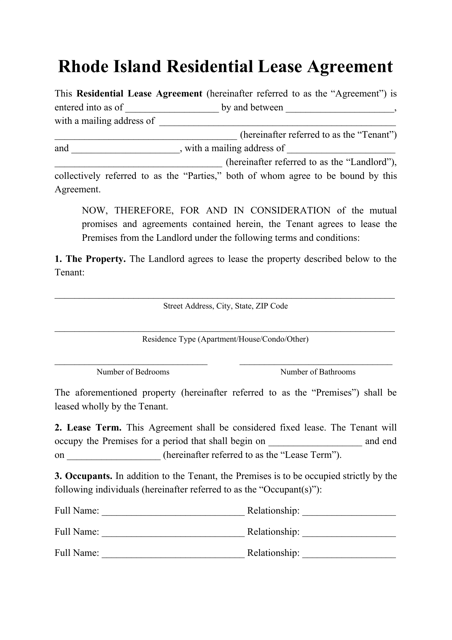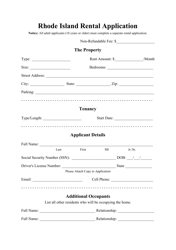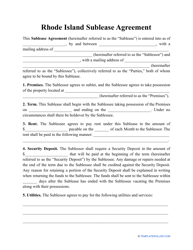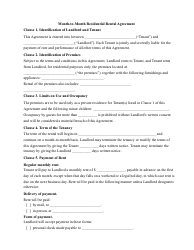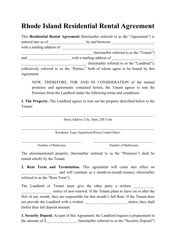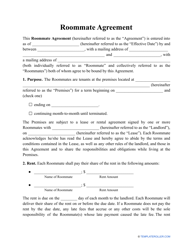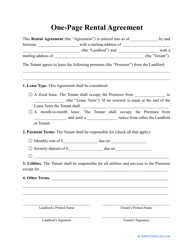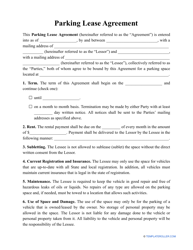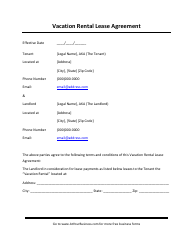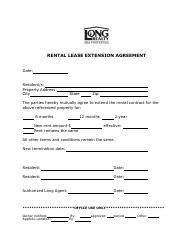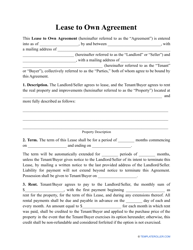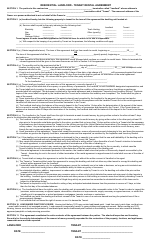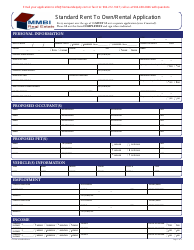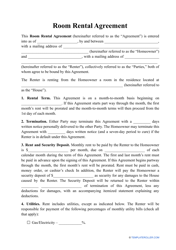Residential Lease Agreement Template - Rhode Island
A Residential Lease Agreement Template for Rhode Island is a standardized document that helps landlords and tenants establish the terms and conditions of a rental agreement for a residential property in the state of Rhode Island. It outlines the rights and responsibilities of both parties and serves as a legally binding contract.
The residential lease agreement in Rhode Island is usually filed by the landlord or property owner.
FAQ
Q: What is a residential lease agreement?
A: A residential lease agreement is a legally binding contract between a landlord and a tenant that outlines the terms and conditions of renting a residential property.
Q: What does a residential lease agreement typically include?
A: A residential lease agreement typically includes information about the property, rent payment details, lease duration, security deposit, maintenance responsibilities, and other terms and conditions.
Q: Is a residential lease agreement required in Rhode Island?
A: Yes, a residential lease agreement is generally required in Rhode Island for renting a residential property. While oral agreements are also legally binding, having a written lease agreement is strongly recommended.
Q: Can a landlord increase the rent during the lease term?
A: In Rhode Island, a landlord can increase the rent during the lease term only if the lease agreement allows for rent increases or if the tenant agrees to the increase in writing.
Q: Can a tenant terminate a lease early in Rhode Island?
A: In Rhode Island, a tenant can terminate a lease early if there is a valid reason, such as a landlord failing to maintain the property. However, the tenant may still be responsible for paying rent until a new tenant is found.
Q: What are the tenant's responsibilities in maintaining the rental property?
A: The tenant is typically responsible for keeping the rental property clean and undamaged, reporting any maintenance issues to the landlord, and following any specified rules or regulations outlined in the lease agreement.
Q: What are the landlord's responsibilities in maintaining the rental property?
A: The landlord is generally responsible for maintaining the rental property in a habitable condition, making necessary repairs, and addressing any issues related to health and safety.
Q: Can a landlord evict a tenant in Rhode Island?
A: Yes, a landlord can evict a tenant in Rhode Island for valid reasons, such as nonpayment of rent, violating the terms of the lease agreement, or engaging in illegal activities on the property. The eviction process must follow the legal procedures outlined in state law.
Q: How much security deposit can a landlord charge in Rhode Island?
A: In Rhode Island, a landlord can generally charge up to one month's rent as a security deposit. The security deposit must be returned to the tenant within 20 days after the end of the tenancy, minus any deductions for damages or unpaid rent.
Q: What should a tenant do before signing a residential lease agreement?
A: Before signing a residential lease agreement, a tenant should thoroughly read the terms and conditions, ask any questions or seek clarification on any unclear provisions, inspect the property, and consider obtaining renters insurance.
